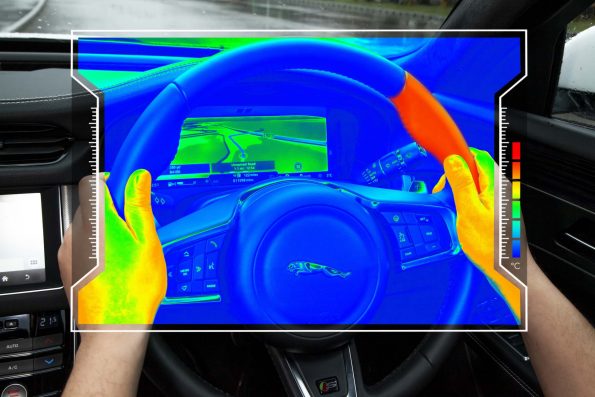While it’s taking the motoring world some time to get used to the idea that the Ford GT sports a V6 engine that pushes out 600 horsepower and is subsequently knocking the V8 off its throne, motorists will have to brace themselves for a four-cylinder supercar. This tech is now the new normal, and for motorists, the transition to new tech happens far more seamlessly than we realise. From performance to safety specs that will turn any journey into a breeze, consumers have a few choice advancements to their cars that will quickly be integrated as the new normal.
Autonomous driving brings along a few extras
While the race to autonomous driving is no new one, with manufacturing giants pushing to see who can deliver the first level 5 car, there are other projects inspired by this race. Perhaps one that will create safer roads for all, is the interconnectivity between cars. This means that in the near future, cars will be able to communicate with each other and their surroundings. What this means for motorists is that the roads will be safer, as problem areas and delays will already be a known variable to the car’s processor.
Another tech that interweaves with both autonomous driving and interconnectivity is the driver override function. This means that if the driver is in control of the car and the car has enough data to support a system override, it can prevent serious traffic hazards by overriding the driver’s decision.
The hybrid car gets a boost in power
One of the greatest obstacles hybrid car manufacturers have is the short distances electric cars cover before needing to be refuelled. While there is the option to put more batteries in the car, this makes the car a lot heavier, which not only taps the energy faster but also reduces the performance and driving pleasure of the car. The solution, thanks to innovative tech, is believed to be energy-storing body panels. For Toyota, however, this is simply not enough, and they not only wish these body panels to store energy, but also convert solar energy. For motorists, the increased innovation in tech means easier access to hybrid cars, which will allow them to make savings in repayments. The object for manufacturers is to make these cars as light, cheap, and strong as possible to provide accessible and reliable cars to consumers, without taxing the environment.
Further tech that looks to boost the hybrid car market is smaller battery units that are lightweight. This tech will go along way for a car that relies on maximum power output, and with a weight and size reduction, this will be well-met in the motoring world. Compacting battery power is an innovative technology that not only benefits the motoring industry but can have a significant impact on other industries as well.
The new rideshare is driverless
Car as a Service (CaaS) is the new form of rideshare service that consumers can look forward to, and it relies on autonomous technology. For those who are concerned about travelling alone with a driver, this may be a more suitable option. It also happens to work well as a delivery service, as corporations would not have to worry about driver errors or fatigue. For manufacturers, liability might just be the biggest hindrance here, as these driverless cars will need to perform flawlessly. According to reports, these cars are expected to roll out as early as 2025.
Additional feedback mechanisms
We use our eyes and ears to keep ourselves aware of hazards around us, but haptic and sensory feedback systems that vibrate or heat our steering wheels are also being experimented with.

The car tech of the future is just around the corner, and for motorists, a simple integration is often the easiest. New tech in the motoring world will undoubtedly lead to further innovation, and for car enthusiasts, the future looks bright indeed.
